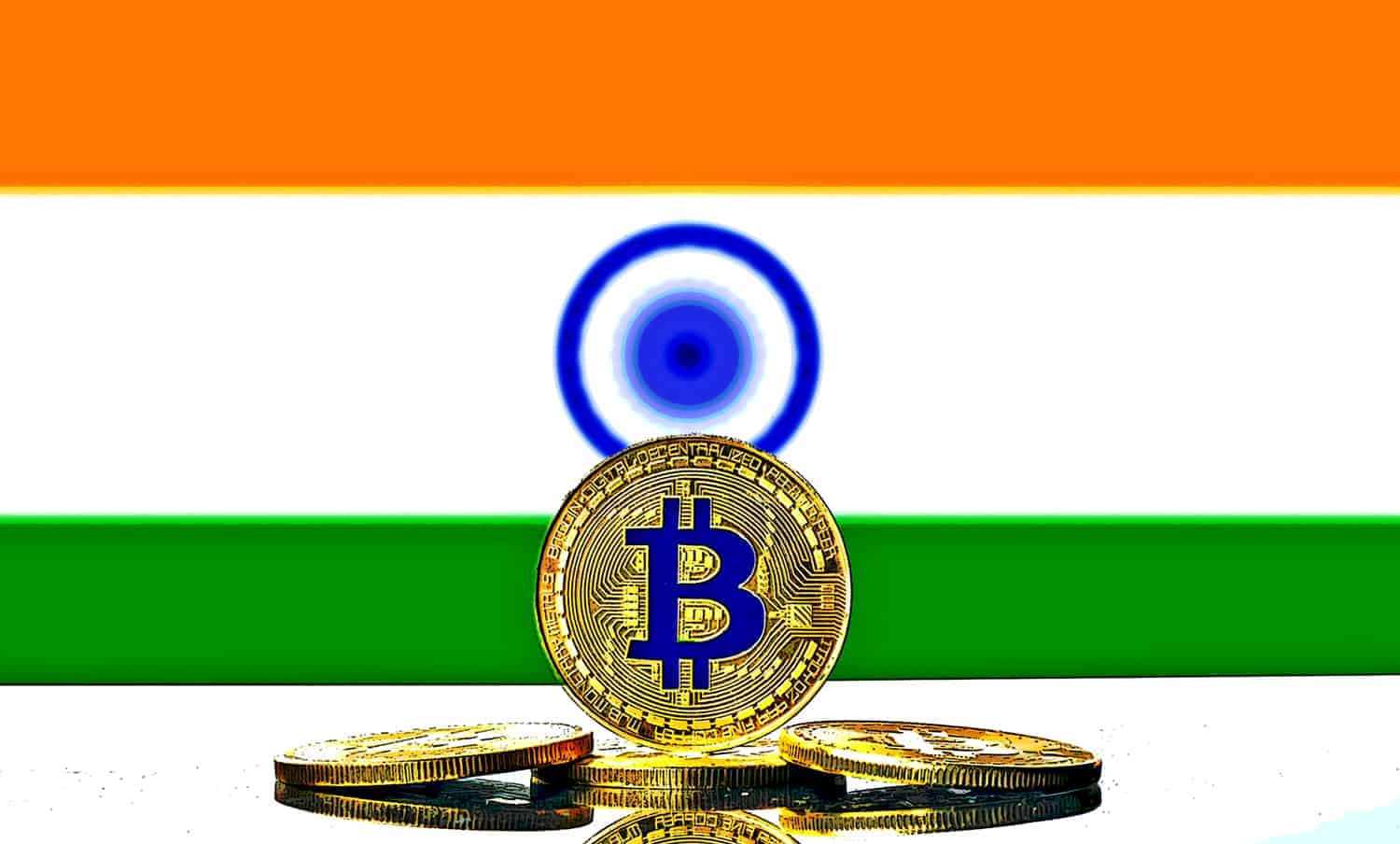What you’ll learn in this article:
- What is DeFi (decentralized finance)?
- How DeFi can benefit small businesses and developing economies
- Why India has repeatedly sought to ban crypto activity
- What are the concerns about DeFi
- Where crypto in India legally stands now
India is ripe to emerge as a leader for DeFi in Asia, experts say — but reports about a potential new government ban on cryptocurrency have put dark clouds over the industry again.
DeFi, or decentralized finance, provides financial services through a decentralized network that interacts with smart contracts and dApps and is predominantly built on the Ethereum blockchain.
Though it is still too early for DeFi — an industry still in its infancy — to have a meaningful impact on the world’s fifth-biggest economy, industry leaders are trying to make the case that the need for it in India is great, and growing.
For the hundreds of millions of Indians who are unbanked or underserved by traditional financial services, DeFi can provide low-cost alternatives for lending, obtaining credit and borrowing money.
“[DeFi] does not discriminate between the haves and the not have, the rich and the poor as much as the traditional financial ecosystem does,” said Siddharth Verma, co-founder of Nuo Network, a Mumbai-based company that allows users to lend, borrow, or margin-trade crypto assets.
In these pandemic times, DeFi may be more important than ever to India, those in the industry say — especially as the clock is ticking all too quickly for businesses that have been in lockdown and are in dire need of credit or loans just to survive. A recent survey conducted by non-governmental trade organization Nasscom showed that 70% of Indian startups have less than three months of funds to keep going before running out of money.
“SMEs are the heart of India, but they have the least access to capital,” Sahil Dewan, co-founder of Harmony Protocol, told Forkast.News.
The struggles experienced by India’s startups and SMEs (small and medium-sized enterprises) — especially during these difficult pandemic times — industry observers say, is why India needs DeFi now more than ever.
But some in India’s government disagree, and may be seeking to push back against the industry again.
Last week, the Economic Times — citing an unnamed government senior official — reported that the Indian government is now looking into ways to ban crypto outright.
“This news is not really that surprising,” Pontis CEO Hemanth Kumar told Forkast.News. Pontis is part of India’s fledgling DeFi community.

India’s budding DeFi ecosystem has been through a legal roller coaster ride in recent years. The industry was thrown into upheaval when the Reserve Bank of India (RBI) in 2018 banned banks from doing business with cryptocurrency companies, causing some to take a pause while others shut down.
Last year, a committee led by former Indian finance minister Subhash Garg — citing the volatility of cryptocurrencies and concerns about the rise of an alternative currency in the country — issued a report that threatened to impose a strict crypto ban that would include up to 10 years in prison for violators.
In March this year, the Supreme Court lifted the RBI ban in a ruling that cryptocurrency industry leaders called a “game changer,” and India’s crypto scene began to flower again. India’s largest crypto exchange, CoinDCX, experienced a 1,000% growth in user registrations afterward. The industry gained another boost last month when RBI, in response to industry demands for clarification, confirmed in writing that no banking bans exist against the nation’s crypto industry.
See related article: India crypto leader calls Supreme Court victory against central bank ‘game changer’ for industry
But new reports that the Indian government is reconsidering a crypto ban has thrown DeFi back into turmoil.
According to Economic Times, RBI’s loss to the crypto industry before India’s highest court prompted the current behind-the-scenes maneuvering, which reportedly includes consultation of cabinet members as well as Parliament toward a possible ban.
“This was the expected course of action from the Finance Ministry after that report [from last year] was filed suggesting a complete ban,” Kumar said.
The Indian government’s concerns about cryptocurrencies aside, DeFi is also not without skeptics and critics.
The nascent DeFi industry, which is still largely unregulated, has recently been subject to a number of high-profile hacks and failures. In March this year, some DeFi users had their holdings wiped out in the now-infamous Black Thursday incident of the world’s largest DeFi protocol, MakerDAO, when a sudden price crash triggered an automatic liquidation of their portfolios. A few weeks later, Chinese DeFi protocol dForce became top of the news when cyber criminals stole US$25 million worth of assets and then, humiliating dForce further, surreptitiously gave back the assets.
Symbiosis
But to India’s crypto enthusiasts and DeFi industry leaders, these are mere bumps in the building of a new road. They argue that theft, data breaches and user losses can happen in traditional finance as well, and that at this juncture in the global and increasingly digitized economy, a crypto ban would be taking India backward.
Not only can India’s businesses really use DeFi to survive the pandemic hardships and grow, industry advocates say, DeFi can also benefit from doing business in India’s huge, hungry market as well as tapping into its world-class tech talent pool.
India’s IT-BPM (business process management) sector recorded $177 billion and 6.1% growth during the 2019 financial year. “A lot of development happened since the 2000s, [and a lot of] the software developments were actually done by Indians,” said Raghu Mohan, CEO of IBC Media, an innovation management firm headquartered in Sunnyvale, California.
A 2019 study conducted by Evans Data predicted that India would overtake the U.S. to be home to the largest number of software developers in the world by 2024.
The people in India may already be primed for accessing financial services online. The world’s second most populous nation also boasts the world’s second-highest number of active internet users, with over 500 million connected, according to the Internet and Mobile Association of India (IAMAI). India’s largest payments network, Unified Payments Interface (UPI), which provides transactions through mobile phones, is a domestic concept. India is also already the top remittance recipient in the world, receiving over $83 billion in 2019.
Cross-border remittances is another area that DeFi companies are eyeing to enter, in the form of Cross-Fi. For Indian nationals working abroad sending money back home, the high transaction fees charged by banks and money changers suggest big inefficiencies in the current financial structure. “Some of these problems exist and they’re not solved by existing banking institutions and existing financial institutions,” Dewan said.
According to the World Bank, the average transaction fee for cross border remittances is 7.45%, with traditional banks charging the highest rates. By removing intermediaries like traditional banks, DeFi may be able to help overseas Indian workers send money home more cheaply. The United Nations has deemed remittance reform as part of its Sustainable Development Goals and wants to reduce remittance transaction costs to less than 3% by 2030.

Dewan told Forkast.News that transactions settlements in Harmony’s public blockchain will be instant, and utility fees for transaction settlement will be negligible. Harmony’s cross-fi services could bring fees below 0.5%, according to Dewan — far below UN’s Sustainable Development Goal.
Although cryptocurrency can become a tool of transfer, Nuo Network’s Verma believes DeFi’s lack of liquidity and unsolved regulatory issues remain as obstacles standing in the way of mainstream adoption in India.
“That is definitely going to remain a challenge in India because you will have to essentially use Coinbase and convert it over there, and then bring it back over here, and then there’s going to be a lot of investigations from the regulator,” Verma said.
How DeFi is expanding in India
The demand for alternative financing models to help the struggling private sector and the high number of active internet users may make India an ideal test tube for DeFi. But with legal clouds gathering over crypto again, some remain skeptical that DeFi will blossom in India any time soon.
“Cryptocurrencies would have to be legally tradable and should be promoted to be accepted by the nation,” CoinDCX co-founder Neeraj Khandelwal told Forkast.News. “Only then, that facilitates DeFi development.”
CoinDCX aims to continue introducing the mainstream audience to cryptocurrencies and eventually DeFi, while Pontis is trying to connect the public through a different approach.
“The B2C space in DeFi is already crowded,” said Kumar, of Pontis. His Bengaluru startup aims to allow centralized exchanges to provide DeFi services directly to their customers by integrating DeFi protocols and bundling up application programming interfaces (API) and smart contracts. “That’s where we are trying to solve the challenge of how to bring DeFi goodness to the masses,” Kumar said.
To trade assets in India’s traditional markets, investors need to create a dematerialized account (demat). However, according to the Securities and Exchange Board of India (SEBI), only 40 million total demat account holders are registered in a population of almost 1.4 billion people.
According to the 2017 Global Findex database, about 190 million people in India are still underbanked, and DeFi advocates say alternative financing services could fill this gap.
“When no other options increase in India, DeFi is going to be a natural next step for the developers, for the community in India,” Khandelwal said.
But all that, of course, would be subject to what the Indian government does next.





